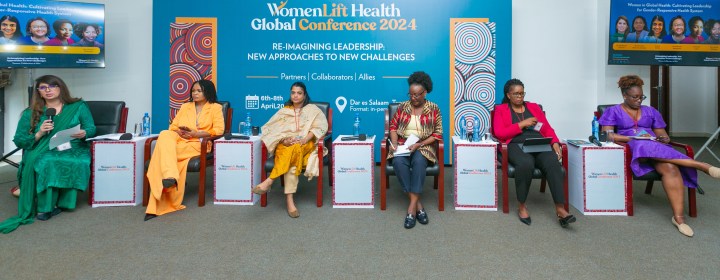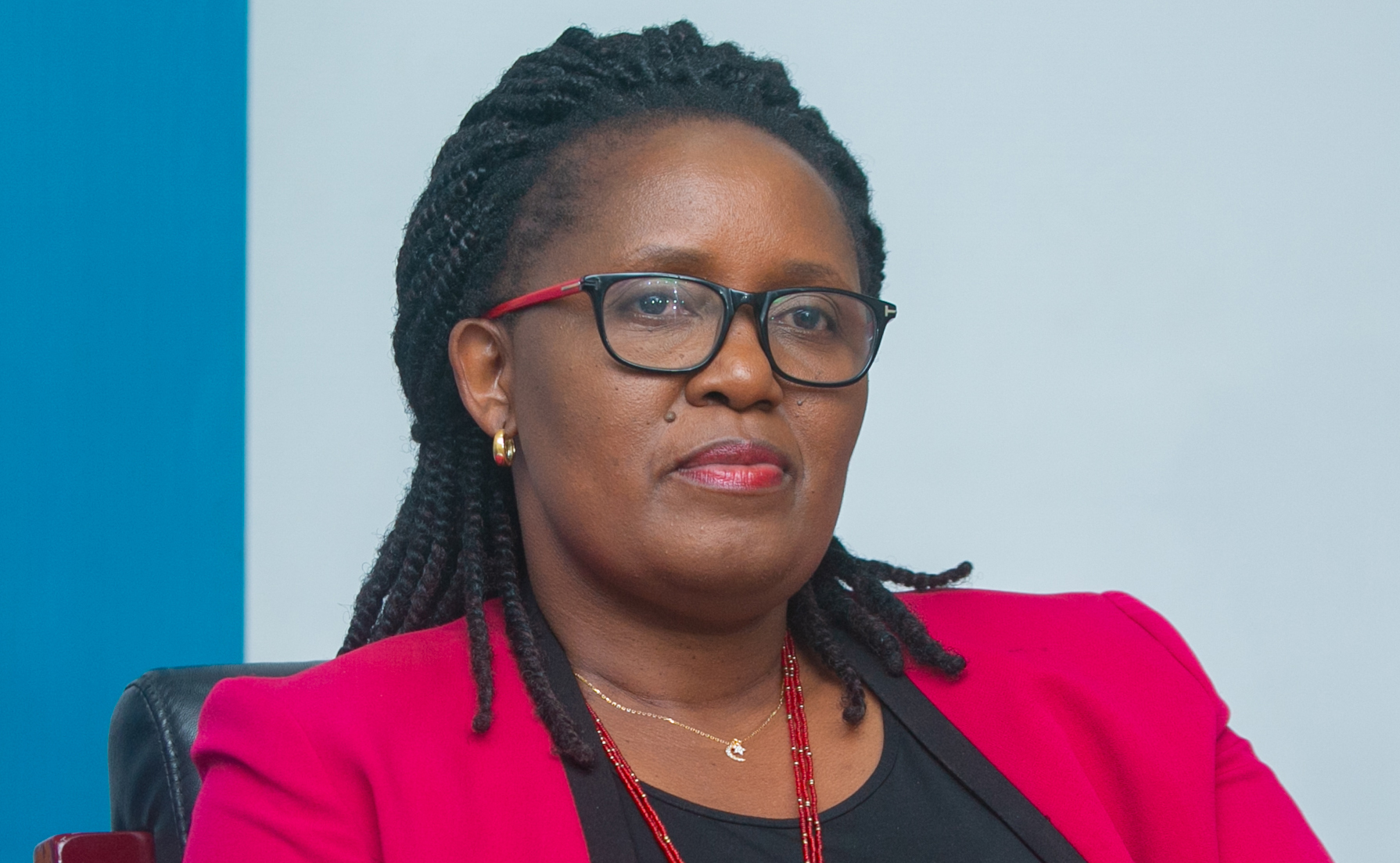GENDER EQUITY BATTLE
Health sector needs more women leaders to tackle backlash against sexual and reproductive rights — experts

Amid an escalating anti-rights backlash, health experts have stressed the need for a policy initiative to promote gender equity in health leadership.
‘I think the backlash is great, it means we’re doing something right. It means we are scaring people a little bit, they are a little lost, they don’t know what to do with us, and so they’re acting out. That is the idealist part of my brain, but I think what is scary is that [the] backlash everywhere is becoming more and more organised, it is becoming more funded, and it is increasingly using the language that most of us in this room use”.
This is according to Sapna Kedia, assistant director for gender and social development at the International Center for Research on Women, who was speaking during a panel discussion on defying backlash while cultivating leadership for gender-responsive health systems.
The panel formed part of the WomenLift Health Global Conference 2024 in Dar es Salaam, Tanzania, from 6 to 8 April, with the theme “Reimagining leadership: new approaches to new challenges”.
The conference is focused on advancing women’s leadership in global health and promoting gender equality and includes plenaries, panel sessions and workshops.
The panel included Dr Choolwe Jacobs, head of department for epidemiology and biostatistics in the School of Public Health at the University of Zambia; Rhoda Wanyenze, the dean of the Makerere University School of Public Health in Uganda; Maureen Luba, an advocate for women’s health with more than a decade’s experience working on HIV, TB and sexual and reproductive health and rights advocacy; and Lanice Williams, a global health and gender consultant.
Moderated by Dr Shabnum Sarfraz, the deputy executive director at Women in Global Health, the panel unpacked the effects of the intensifying opposition to women and girls’ rights, spotlighting the crucial role of women in the health sector as they navigate and counter these adversities in different contexts.
The rise of men’s rights groups
Kedia said men’s rights groups are now frequently using the language of rights and of freedom of expression, peace and equality, and this is one of the biggest challenges to overcome.
Introspection regarding the reason for the rise of these groups was important.
“I think it has to do a lot with the fact that as movements, as women, as organisations or civil society people, we haven’t engaged with men enough. In India, when we work in schools, we always have sessions for girls, we have sessions largely for female teachers, and the boys will say, ‘why [are you] not doing anything for us? I think that’s where we sort of fall short.”
Online reflects offline
Social media is also now used as a tool for men’s rights groups, said Kedia.
“As people who have been part of women’s movements, I think collectivisation has been our strength […] and I think the men’s rights groups are doing that. They have power, they have more money, and they have more access to technology.
“The fact that we omitted men from our work, I think that’s coming out in the online space. We all have to figure out what we are going to do with the backlash on the online space, and it is a reflection of what’s happening offline, but it’s worse because it has this layer of anonymity.”
Policies not always translating into action
Luba said that although Malawi has policies and legal frameworks that seek to promote women’s participation in socioeconomic development and advance gender equality, they do not always translate into action on the ground.

Maureen Luba, an advocate for women’s health, said an example of anti-right movements having a significant impact on public health is the Protecting Life in Global Health Assistance which prohibits US global health funding provisions to non-governmental organisations (NGOs), or civil society, from completing or even providing a referral for abortion services. (Photo: Supplied)
One example of anti-right movements having a significant impact on public health was the Protecting Life in Global Health Assistance policy in the US.
“It actually prohibits US global health funding provisions to nongovernmental organisations (NGOs), or civil society, from completing or even providing a referral for abortion services, even if those activities are not funded by US government sources,” Luba said.
Each time the policy was reinstated it had “a very, very harmful impact” on the ability of NGOs to do the work of promoting access to sexual and reproductive rights services (SRHR), and also limited the extent to which vulnerable women could access services.
“As activists and CSOs, we have fears that if Donald Trump comes back to power, this will be reinstated and we will see the same challenges we saw when it was reinstated in 2017 – women not being able to access SRHR services, or NGOs being restricted in terms of the work they can do.”
Conservative and patriarchal attitudes also influence policies
Wanyenze said conservative and patriarchal attitudes seep through and are integral parts of all spaces.
“Think about the policies, the services, and how we design and deliver them, we can feel it and we see it […] For example, in several of our policies across a number of countries in Africa, we don’t explicitly talk about issues of sexuality, access to information, who gets information, and where, and so we have pretty much quite often a moralistic approach towards this,” she said.

Rhoda Wanyenze said that conservative and patriarchal attitudes seep through and are integral parts of all spaces.(Photo: Supplied)
Uganda had a policy which targeted vulnerable and marginalised adolescent girls and young women, including teenage mothers, for a second chance at education.
“This policy caters to you having this chance to come back, but what do we do for you when you come back with a baby? Do you come with a baby to the classroom? What are the other needs that you have as a young, single mother for you to be able to come back?” Wanyenze asked.
She said there were also debates about how to welcome these students back to school which were influenced again by moralistic attitudes.
“We say, ‘if you treat them too good, you’re encouraging the good girls to do what these have done’, and then we’ve had stories that are pretty depressing where schools give a different uniform to these girls because they can’t have the same colour as the rest, otherwise they will be so comfortable that others will want to do what they have done.
“So they are stigmatised. They are mistreated. And even when they come back, they basically want to run away and get back to where they’ve gone. In the meantime the boys continue with school.”
Women leaders in the health sector play a crucial role
Jacobs said women needed to be equitably represented in decision-making positions in leadership in the health sector.
“Women leaders in the health sector have a crucial role because most of the time we see that they carry the burden of the diseases or most or many of the challenges within health, but also women bring innovative solutions to most of these challenges,” she said.
There was evidence that demonstrated the significance of achieving gender parity in leadership, including research completed in 2023 that showed that when women led, they had a positive influence on the development of maternal healthcare policies.

Dr Choolwe Jacobs said women needed to be equitably represented in decision-making positions in leadership within the health sector. (Photo: Supplied)
“Female leaders versus male health ministers were associated with an average of 66% increase in procurement of contraceptives. Female decision-makers versus male decision-makers also exhibit a greater commitment to health policies, implementation of health policies, greater commitment to the procurement of commodities,” Jacobs said.
Backlash against SRHR in the US
Williams spoke about the growing influence of anti-rights movements in the US and their effects on public health and women’s right to sexual and reproductive services.
In June 2024 it will be two years since the Dobbs v Jackson Women’s Health Organization Supreme Court decision which led to the overturning of Roe v Wade.
“We know that that law pushed back to the states to make the decision on a woman’s right to choose on having access to abortion. Since that ruling we have seen over 28 states have enacted restrictions on abortion depending on the gestational age, ranging from six weeks to 24 weeks, and then of course there are also 14 states in addition to that, where it’s almost completely bandwidth-limited,” Williams said.
Read more in Daily Maverick: Sexual and reproductive health rights in Africa still viewed through a patriarchal lens
The Roe v Wade decision had caused a ripple effect on other healthcare matters.
“It has led to a lot of the discussions that have been happening in the US Congress around the re-authorisation of the President’s Emergency Plan for Aids Relief (Pepfar) which we all know it’s an HIV programme that has helped a lot of countries reduce their rate and put people on life-saving treatment, in addition to a lot of preventative initiatives,” she said.
Republication politicians were falsely saying Pepfar funds were being used for abortion.
The ruling from the Alabama Supreme Court that frozen embryos were considered children, and that a person could be held liable for accidentally destroying them, was another cause for concern.
“With all of these things happening, I think it’s impacting women very negatively. The US, like many other countries, will be going into elections in November of this year and SRHR is also up on the ballot,” Williams added. DM



















 Become an Insider
Become an Insider
A trump presidency will worsen the ugliness, the oppression of women, and the further removal of civil liberties in SwampUSA. We saw that happening from 2015 and the USA is worse off socially and politically since then. At least, there’s no longer a social troll in the White House, but the beast of Babylon may well be back. Who would have thought the POTUS would one day be endorsed by the KKK? It’s unthinkable, and yet trump…